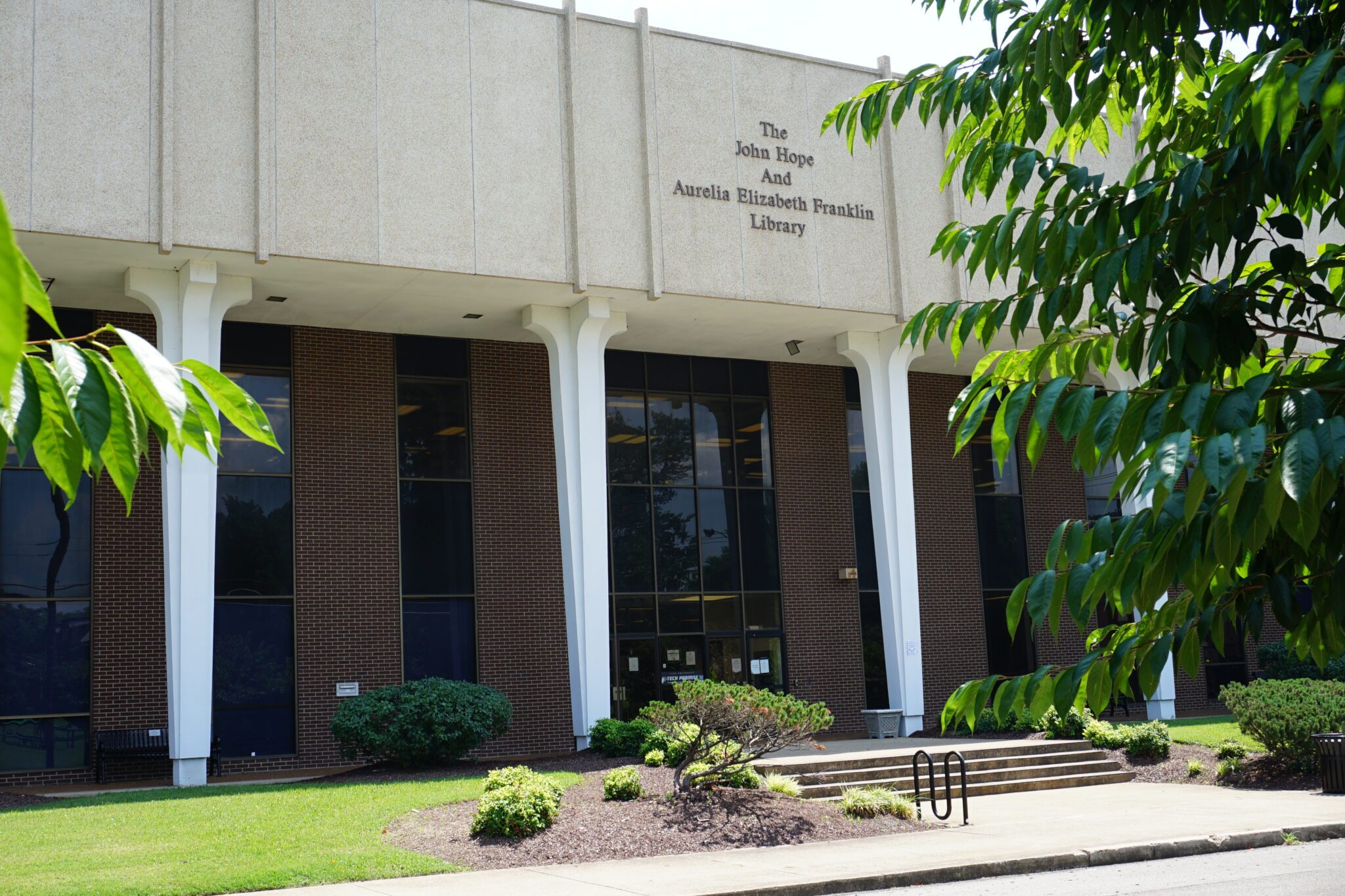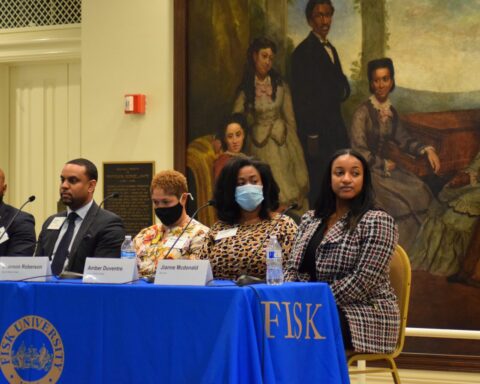Written By Fisk University
Fisk University and the Schomburg Center for Research in Black Culture have received a two-year $120,000 NHPRC-Mellon Planning Grant for Collaborative Digital Editions in African American, Asian American, Hispanic American, and Native American History and Ethnic Studies. The collaborative grant program between the National Historical Publications and Records Commission and the Andrew W. Mellon Foundation has the “overarching goal to broaden participation in the production and publication of historical and scholarly digital editions.”
“Remaking the World of Arturo Schomburg” marks the first partnership between the John Hope and Aurelia E. Franklin Library at Fisk University and the Schomburg Center for Research in Black Culture. Joy Bivins, Director of the Schomburg Center for Research in Black Culture states, “The Schomburg Center is proud to partner with Fisk University in this significant project which seeks to make more visible the visionary work of Arturo Schomburg, especially during this moment when the legitimacy of Black and Ethnic Studies is under attack. Schomburg’s work remains critical to our understanding of the contributions of Black scholars, of all kinds, to amend narratives that seek to render people of African descent invisible.” DeLisa Minor Harris, Director of Library Services at Fisk, adds, “we are excited about this important partnership that brings together two of the nation’s leading institutions for Black collections and research. Arturo Schomburg’s innovative work transformed Fisk’s collections, and the project will ensure all generations know and can appreciate the critical legacy and journey of Arturo Schomburg through the digital edition.”
Arturo Schomburg (1874-1938), the African diaspora’s most famous bibliophile, immigrated to New York City from Puerto Rico in 1891. Once settled, he founded the Negro Society for Historical Research, modeled a diasporic approach to studying Black culture, and seeded two iconic archives in the 1920s and 1930s—one at the New York Public Library and the other at Fisk University. These two institutions are partnering for the first time to unite their records on Schomburg and collaborate with scholars to build an edition that will illuminate the global network of early twentieth-century bibliophiles, intellectuals, librarians, and “street scholars” who founded the field of Black history.
DeLisa Minor Harris, Director of the Fisk University John Hope and Aurelia E. Franklin Library, and Barrye Brown, Curator of Manuscripts, Archives and Rare Books at the Schomburg Center, will serve as co-directors of the project. Melanie Chambliss, Assistant Professor of History at the University of Rochester (starting Fall 2024), and Laura Helton, Assistant Professor in the English and History departments at the University of Delaware, serve as Scholar-Editors.
A project advisory board of more than a dozen scholars, curators, librarians, and teachers will participate in shaping the work. The project advisors include: Cheryl Beredo, Associate Director of Collections, Research, and Education, Beinecke Rare Books and Manuscript Library, Yale University; Katharine Burnett, Associate Professor and Chair of English, Fisk University; Jim Casey, Assistant Professor of African American Studies, History, and English, Pennsylvania State University; Margarita Castromán Soto, Assistant Professor of English, Rice University; April Collins, AP Computer Science Teacher, Martin Luther King, Jr. Magnet School, Nashville Public Schools; Pero Gaglo Dagbovie, Professor of History, Associate Provost for Graduate and Postdoctoral Studies and Dean of the Graduate School, Michigan State University; Brent Hayes Edwards, Professor of English and Comparative Literature, Columbia University; Jacqueline Goldsby, Professor of English and African American Studies, Yale University; Jesse Hoffnung-Garskof, Professor of History, Harvard University; Lopez Matthews, District of Columbia State Archivist and former Digital Production Librarian, Howard University Libraries; Meredith L. McGill, Professor and Chair of English, Rutgers University; Benjamin Talton, Director, Moorland-Spingarn Research Center, Howard University; Sarah Tanner, Head, Archives Research Center, Woodruff Library, Atlanta University Center; Vanessa K. Valdés, Associate Provost for Community Engagement, The City College of New York; Rachel E. Winston, Black Diaspora Archivist, University of Texas at Austin; and Rafia Zafar, Professor of English, Washington University in St. Louis.
In content and concept, “Remaking the World of Arturo Schomburg” reanimates Schomburg’s vision for a network of researchers and repositories committed to preserving Black diasporic thought. As project hubs, Fisk University and the Schomburg Center continue the historic role played by Black special collections in scholarly publishing.





